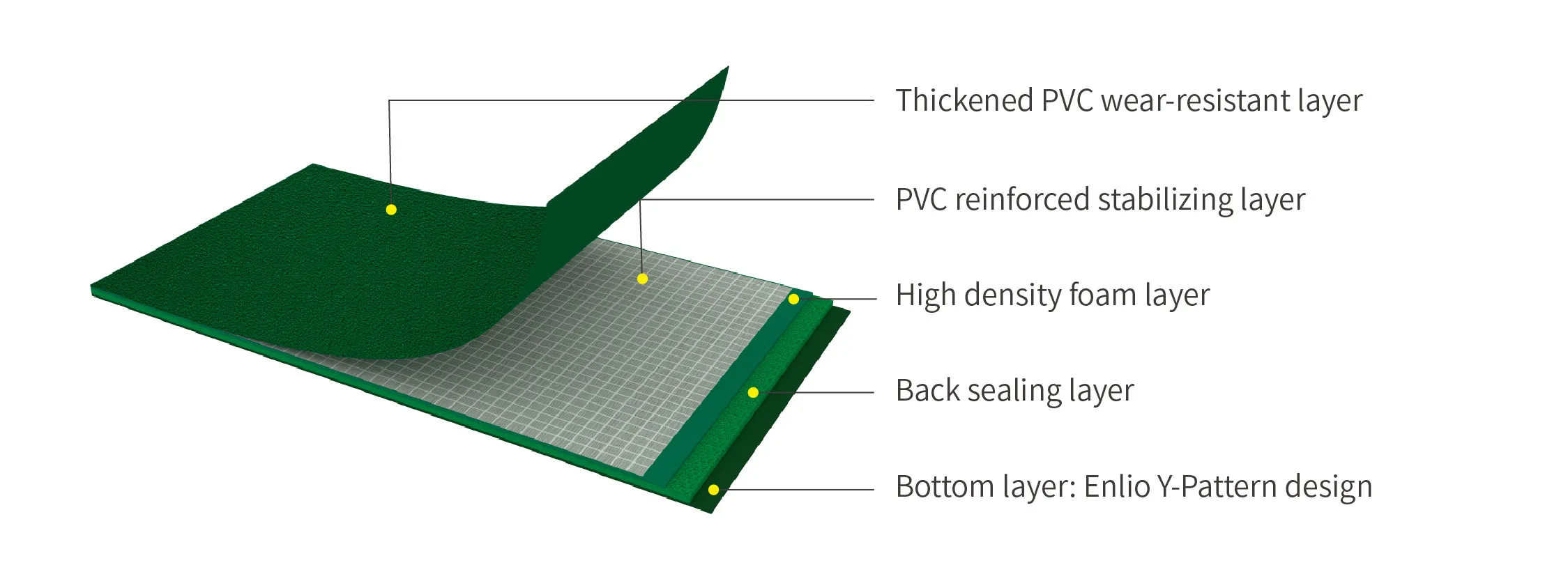Aug . 12, 2024 23:56 Back to list
Understanding Factors Influencing Commercial Flooring Prices and How to Choose the Right Option
Understanding Commercial Flooring Prices A Comprehensive Guide
When it comes to outfitting a commercial space, flooring is one of the most critical components that business owners must consider. The right flooring not only enhances the aesthetic appeal of a space but also contributes to functionality, safety, and maintenance costs. However, navigating the myriad of commercial flooring prices can be daunting. This article aims to provide an overview of the factors that influence these prices, along with a breakdown of common flooring options.
Factors Influencing Commercial Flooring Prices
1. Type of Material One of the primary determinants of flooring pricing is the type of material chosen. Options include carpet, vinyl, laminate, hardwood, tile, and more. Each material comes with its unique cost structure. For example, luxury vinyl tiles (LVT) may be more affordable than natural hardwood flooring, but they can offer a similar aesthetic.
2. Durability and Longevity In commercial settings, durability is a crucial consideration. Floors experience high foot traffic and are subject to wear and tear. High-quality flooring materials tend to have higher upfront costs but can save money in the long run through reduced maintenance and replacement needs.
3. Installation Costs Installation can significantly affect the overall flooring cost. Some flooring types, such as carpet tiles or click-lock laminate, are easier to install and may reduce labor costs. On the other hand, more complex materials like tile require skilled labor, which can elevate installation expenses.
4. Location and Market Trends The geographical location can also play a role in pricing. Urban areas with higher demand for commercial flooring may see inflated prices, while rural areas might be more affordable. Moreover, prevailing market trends can impact costs; for instance, if a particular style or material is trending, prices may increase.
5. Thickness and Underlayment The thickness of the flooring and the need for extra underlayment can add to the cost. Thicker options generally offer better insulation and soundproofing, which can be essential in commercial environments. Understanding the specific needs of your space is critical in determining the best thickness and underlayment to invest in.
commercial flooring prices

Common Commercial Flooring Options and Their Price Ranges
1. Carpet Carpet tiles can range from $2 to $10 per square foot, depending on quality. They are popular for their comfort and acoustic properties.
2. Vinyl Flooring Vinyl sheet flooring typically costs between $1.50 and $5 per square foot, while LVT may range from $2 to $7 per square foot. Vinyl is prized for its versatility and ease of cleaning.
3. Laminate Flooring Laminate options range from $1 to $5 per square foot. Although they mimic wood visually, they are more resistant to scratches and stains.
4. Hardwood Natural hardwood can be on the higher end, averaging between $5 and $15 per square foot. It is a preferred choice for upscale commercial settings due to its timeless look.
5. Tile Ceramic or porcelain tile ranges from $1 to $20 per square foot based on quality and design. Tiles are celebrated for their durability and design flexibility, making them suitable for various environments.
Conclusion
In conclusion, understanding commercial flooring prices involves looking at various components, such as material type, durability, installation costs, and market factors. While it may be tempting to opt for the cheapest option available, it is essential to consider the long-term benefits of investing in high-quality flooring that can withstand the demands of a commercial environment. By taking the time to assess your specific needs and budget, you can make an informed decision that will enhance the overall functionality and appearance of your commercial space for years to come.
-
Durable Plastic Pickleball Court Tiles Versatile Commercial Plastic Flooring Solutions
NewsJul.05,2025
-
Optimal Height for Indoor Pickleball Court Meet Official Standards & Enhance Play
NewsJul.05,2025
-
Premium Pickleball Basketball Sport Court Tiles – Durable, Versatile, Easy Installation
NewsJul.05,2025
-
Converting Tennis Court to Pickleball Fast & Affordable Solutions for Any Facility
NewsJul.04,2025
-
Professional Tennis Court Lining Services Pickleball Court Marking Experts
NewsJun.24,2025
-
Pickleball Court for Sale - Premium Flooring Solutions for Sports Venues
NewsJun.10,2025

